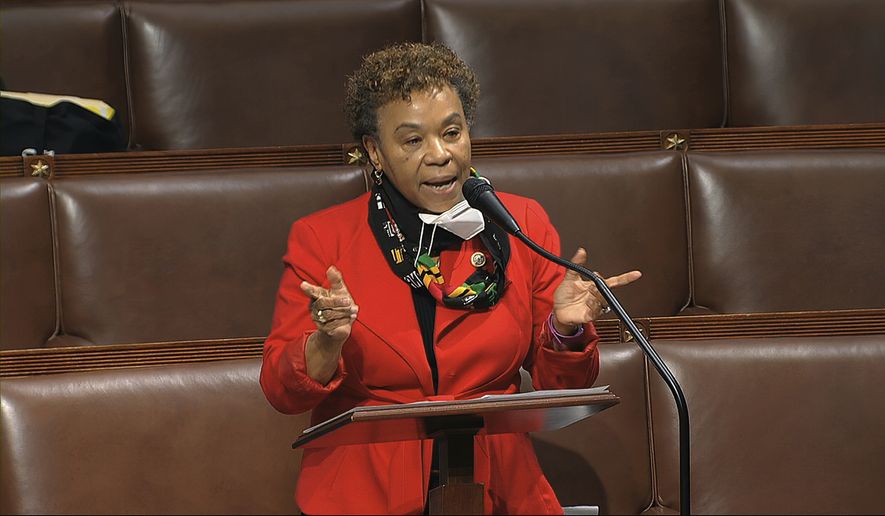The House Appropriations Committee approved an amendment Tuesday tied to next year’s defense spending bill that would repeal the 2001 war authorization that has provided the domestic legal authority to execute the global war on terror following the attacks on 9/11.
Rep. Barbara Lee, California Democrat, introduced the amendment, which would sunset the 2001 Authorization for Use of Military Force eight months after the bill is enacted to allow for Congress to draft a replacement authority.
“The 2001 AUMF was enacted two decades ago and bears little resemblance to the threats we face today,” Ms. Lee said. “It has been employed by successive presidents to wage war well beyond the scope that Congress initially intended.”
The authorization was passed in the days after the Sept. 11 terrorist attacks to allow President George W. Bush to confront Al Qaeda and the Taliban militarily in Afghanistan and elsewhere.
The authorization has since been cited to permit executive authority to prosecute a broad range of counterterrorism operations across the globe.
“Over the past 19 years, three successive presidents have used military force pursuant to the 2001 AUMF in more than seven countries against a continually expanding list of targetable adversaries,” Ms. Lee said.
Ms. Lee sponsored the bill to repeal a 2002 AUMF against Iraq, which passed the House last month. Similar legislation now awaits a Senate Foreign Relations Committee vote before being sent to the Senate floor.
Although the repeal of the 2002 AUMF has received Republican pushback, the House bill received bipartisan support. Detractors in the House argued primarily that the bill should be replaced before it is outright repealed.
Similar arguments were voiced by House Appropriations Republicans regarding the 2001 AUMF repeal, before Ms. Lee’s amendment passed the panel in a voice vote.
“To be sure all of us would agree that it would be good to have a new AUMF. I totally agree. That upholds Congress’ traditional role in the war powers process,” said Rep. Ken Calvert of California, the top Republican on the House Appropriations defense subcommittee.
“Unfortunately there continues to be considerable disagreement on the details [with] no credible prospect for immediate political consensus on these difficult and weighty constitutional matters,” he said.
While the opposing arguments to repealing both authorizations are the same, the stakes may be higher in repealing the 2001 authorization without a replacement.
Chairman of the Joint Chiefs of Staff Gen. Mark Milley testified last month to the House Armed Services Committee that no current military operations rely on the 2002 AUMF, and repealing the authorization would have no impact.
The 2001 AUMF, however, is a different story, according to the general.
“It’s the 2001 AUMF that’s the critical one for us to continue operations,” he said.
Mr. Calvert wants to preserve some of that authorization’s power.
“To unilaterally repeal the principal legal authority on which our servicemen and women rely to carry out global counter-terrorism operations would be a significant mistake and deeply harmful to our national security,” he said. “I can think of few actions that would be more harmful than to repeal this critical counter-terrorism authority without Congress first having passed a replacement that will be signed into law.”
Ms. Lee argues that the provision for sunsetting the authority eight months after the bill is passed will give Congress enough time to replace the authorization.
“It was 60 words. It was passed three days after the awful and horrific attacks of 9/11,” Ms. Lee said of the 2001 authorization. “This bill would allow for the 2001 authorization to stay in place for eight months, not three days, eight months, so we can begin to address looking at what a new AUMF would look like, its scope, its time, its region.”
• Joseph Clark can be reached at jclark@washingtontimes.com.




Please read our comment policy before commenting.